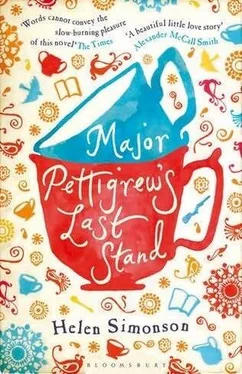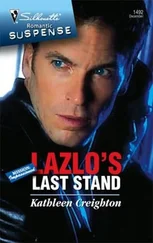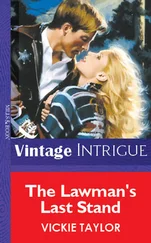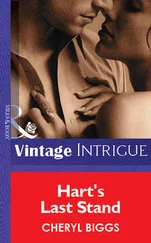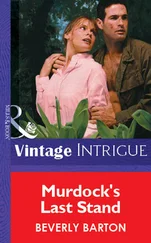“Yes, yes, I suppose it is now,” said the widow, tipping her head at a coquettish angle while Sandy snapped pictures with her diminutive cell phone. “My father made it for my mother’s funeral. She looked so beautiful. And after, he gave it to me to remember her by. Last month I wore it to my aunt’s funeral.” She took out a small, lace-edged handkerchief and wiped her nose.
“We’re very sorry for your loss,” said Roger.
“She could never wear a hat properly,” said the widow. “She was not a lady in the same way as my mother. My mother would never use the telephone, you know. And she would chase away a tradesman with a broom if he came to the front door instead of the service door.”
“Isn’t hat-making a trade?” asked Sandy. “Did she make her husband come in the back door too?”
“Of course not,” said the widow. The feathers quivered and Roger looked slightly sick. “Why, my father made hats for the nobility.”
“May we see the inside of the cottage now?” asked Roger, trying to glare at Sandy without the widow seeing. “I’m sure Sandy would love to talk hats with you for hours, Mrs. Augerspier, but we would like to see it in the afternoon light.”
• • •
As far as the Major could determine, the cottage was a damp and unsuitable mess. The plaster bubbled suspiciously in several corners. The beams looked wormy and the floors downstairs seemed to be made of uneven garden pavers. An inglenook fireplace had more soot on the outside of the oak Bessemer than in the flue. The windows were original, but the panes were buckled and twisted as if the handmade glass might pop from the heavy leading with the slightest rattle of wind.
“It might be possible that I will sell some of the furnishings to the new tenants,” said Mrs. Augerspier, smoothing a lace doily over the back of a tattered armchair. “If I get the right sort of people, of course.” The Major wondered why Roger nodded with such enthusiasm. The dead aunt’s possessions ran to cheap pine furniture, seaside knickknacks, and a collection of plates featuring scenes from famous movies. There did not seem to be a single item that would suit Roger and Sandy’s taste, yet his son examined everything.
In the large empty kitchen, a boxy extension from the 1950s with cheap beams added to a textured plaster ceiling, the Major peered around an open door into a mousy larder and counted eleven boxes of dried chicken soup on the otherwise empty shelves. It seemed very sad that life should have gradually thinned out until so little remained. He shut the door quietly on the evidence.
“Oh, I wouldn’t change a thing,” Sandy was saying loudly to Mrs. Augerspier. “Only maybe I could fit a regular U.S.-sized refrigerator into that back corner.”
“My aunt always found the refrigerator perfectly adequate,” said Mrs. Augerspier pulling aside the check curtains under the counter to show a small green fridge with a fringe of rust. “But then young people today will insist on all that convenience food.”
“Oh, we’re going to shop all the local farm shops,” said Roger. “There’s nothing quite like fresh vegetables, is there?”
“Horribly overpriced, of course,” said the widow. “Designed to rob the weekenders from London. I refuse to shop in them.”
“Oh,” said Roger. He flung a hopeless glance at the Major, who could only stifle a laugh.
“This is a very good table,” continued Mrs. Augerspier, knocking on the plastic. It was still covered with a checked oilcloth. “I would be willing to sell the table.”
“I think we’re going to commission a handmade oak table and a couple of traditional English settles,” said Sandy, turning the dull sink taps and examining the trickle of brown water that was produced. “An art director friend of mine knows this great craftsman.”
“I would like to think of the table remaining here,” said the widow, as if she had not heard. “I think it fits here.”
“Absolutely,” said Roger. “We could have an oak table in the dining room instead, couldn’t we, Sandy?”
“I will show you the dining room,” said the widow. “But it already has a very nice modern dining set.” She unlatched a door and waved them to follow her. Roger followed; as the Major stepped back to allow Sandy to pass, they heard the widow saying, “I would be willing to consider selling the dining set.”
“Do you think the aunt died in her bed here?” whispered Sandy, grinning, as she went by. “And do you think she’ll let us buy the mattress?” The Major could not suppress a laugh.
As they prepared to mount the crooked stairs to the upper floor, Roger shot him a look like a Jack Russell terrier with urgent business. The Major recognized an appeal and was pleased to find he could still read his son’s facial communications.
“My dear Mrs. Augerspier,” said the Major, “I was wondering whether you might consent to show me the garden. I’m sure these young people can manage to look around upstairs by themselves.” The widow looked suspicious.
“That would be so great,” said Sandy, warmly. “We’d love the chance to talk things over as we go.”
“I don’t usually let people go unaccompanied,” Mrs. Augerspier said. “You can’t be certain of anyone these days.”
“If I might vouch for the complete integrity of these particular young people,” said the Major. “It would be so kind of you to indulge me with your companionship.” He extended an arm and resisted the urge to stroke his mustache. He was afraid his deliberately charming smile might look more like a leer.
“I suppose it would be acceptable,” said the widow, taking his arm. “One gets so few opportunities for refined conversation these days.”
“After you,” said the Major.
Coming from the musty cottage, the air smelled like pure oxygen. The Major took a grateful breath and was rewarded with the scent of box and hawthorn underlaid with a hint of damp oak leaves. Mrs. Augerspier turned right along the mossy flagstones and led the way to the main stretch of garden, which rose gently to one side of the cottage. Under a small arbor at the far end, Mrs. Ali sat with Grace who, the Major noticed with alarm, was slumped with closed eyes against the lichen-covered teak seat. Mrs. Ali seemed to be taking her pulse.
“People are so rude to keep coming without an appointment,” said Mrs. Augerspier, hurrying over the grass. “And always they are not suitable,” she added.
“Oh, they’re not here about the house,” said the Major, but the widow wasn’t listening.
“The house is not available,” she called flapping her hands as if to shoo away recalcitrant chickens. “I must ask you to go now.” Grace opened her eyes and shrank back against the seat. Mrs. Ali patted her hand and stood up, stepping forward as if to shield her from the angry bobbing figure rushing across the grass.
“It’s all right, Mrs. Augerspier,” said the Major, catching up at last. “They’re with me.” Grace threw him a grateful look, but Mrs. Ali continued to look at the widow.
“My friend Grace needed to sit down,” she said. “We didn’t think anyone would mind.” Grace hiccupped loudly and sank her face in her handkerchief.
“Well,” said the widow. “Only I get the strangest people wandering in from the road. One couple walked right into the kitchen and then said they thought the house was empty.”
“Now that we have established our credentials, perhaps a glass of water?” asked Mrs. Ali.
“Certainly,” said Mrs. Augerspier. “Wait here and I will bring it to you.” She hurried back toward the house, leaving an awkward silence.
“Dreadful woman,” said the Major at last. “I’m so sorry. I should have driven you both straight home.”
Читать дальше
